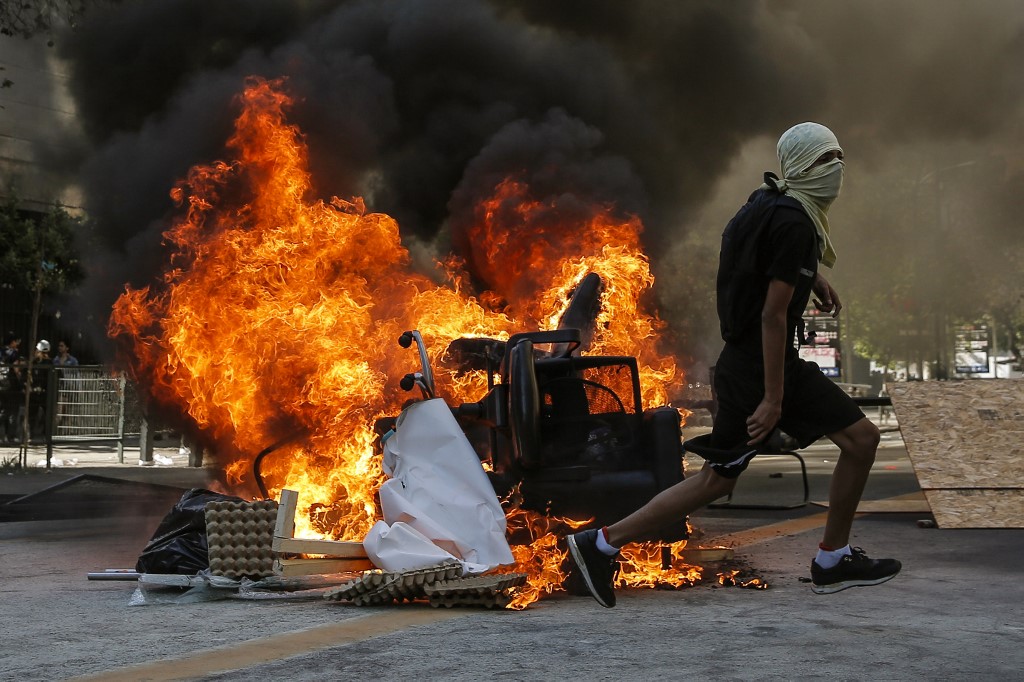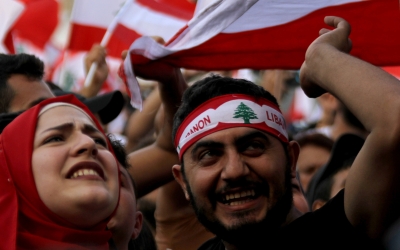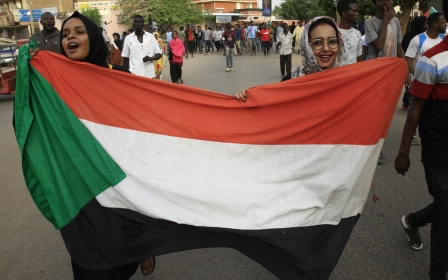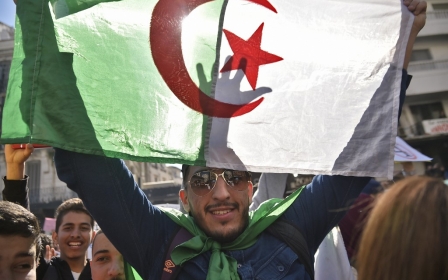From Lebanon to Chile, the people are rising up against neoliberalism
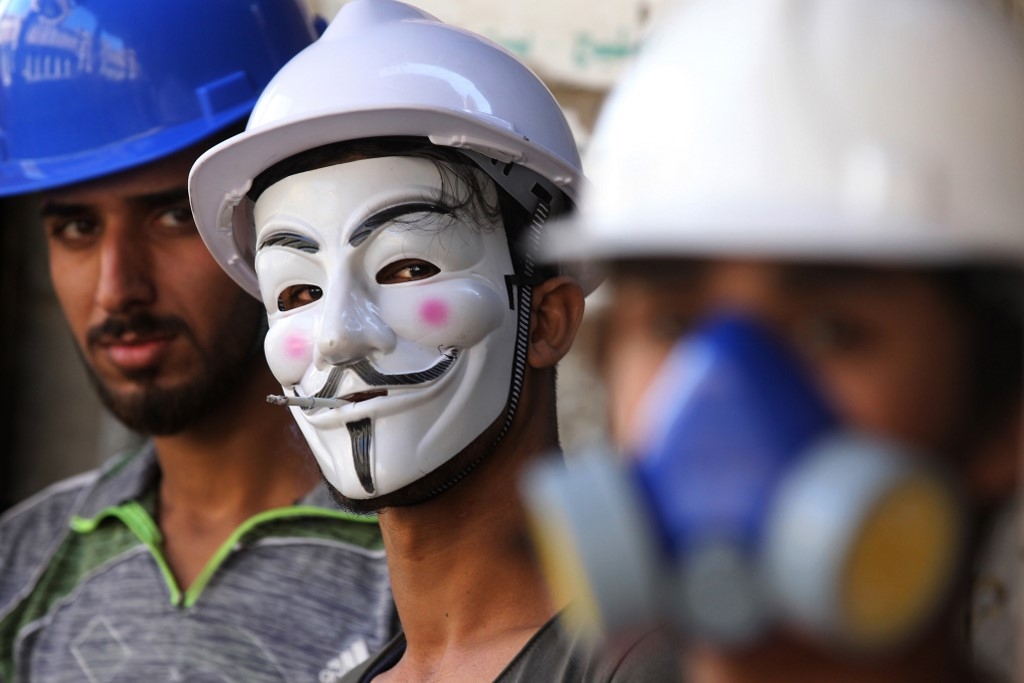
Across the Middle East, people are protesting. They are tired and angry. They want to see something change.
"All of them means all of them," protesters chant in Lebanon, calling for the removal of the political and economic elite. Central Beirut, an area that had been taken over by luxury stores, has been reclaimed by the people.
In Algeria, the power brokers known as "le pouvoir" are being resisted, even after the removal of longtime autocrat Abdelaziz Bouteflika.
Sudan's revolution, which began in the northern city of Atbara, a cradle of labour activism, also continues, as the end of Omar al-Bashir's three-decade rule was not enough. Protesters want to see the dismantling of a violent and ruthless elite, now spearheaded by the militia leader and accused war criminal Hemeti.
Brink of collapse
Stay informed with MEE's newsletters
Sign up to get the latest alerts, insights and analysis, starting with Turkey Unpacked
In Iraq, as oil production hits record levels, citizens are out on the streets risking their lives, with more than 300 killed and 6,000 wounded as the army and paramilitaries cracked down on demonstrations since early October.
The money from the oil goes nowhere near them, of course: according to the UN, seven million Iraqis live below the poverty line, and one-fifth of Iraqi youth are unemployed, in a country whose majority is under the age of 24. Protesters in Iraq are described as being mostly young and unemployed, calling for jobs, electricity and water.
Elsewhere, young people who have grown up in the shadow of the financial crisis of 2007-8 have also come to the fore, often with the same demands: better public services, employment, housing, and some semblance of dignity and democracy.
These global protests have the same root causes. Thus far, sectarianism is being resisted, as the people hold to their common set of grievances
The similarities between these protests are striking, despite national variations. The conditions driving protests in the Middle East are the same not just throughout the region, but across the world, where people are rising up against decades of neoliberalism, from Chile to Haiti to France.
Their demands are universal - employment, housing, democracy, freedom from poverty - and are driven by a political and economic system that has brought this world to the brink of political and environmental collapse.
This is important because of how the Middle East is so often viewed in the western media. It is a place apart, a benighted territory riven by sectarian conflict, barely comprehensible to outsiders without the help of well-paid analysts sitting in offices in Washington and London.
A game of divide-and-conquer can be played, in which the universal interests of the global majority can be twisted by the powerful few into a bewildering set of local grievances, relayed by analysts as if they were talking about a group of primates deep in the jungle or a school of fish in the outer reaches of the ocean.
Neoliberal consensus
This kind of reasoning has often been deployed in the name of getting the peoples of the Middle East to accept the neoliberal consensus of the past four decades.
"You don't understand," they are told. "The market will set you free, these IMF-backed austerity measures are for your own good, the arrival of this large company paying subsistence wages is actually a great honour to your community. What do you mean, you don't love the West? You love football, don't you? You want to leave the ruined place you come from to arrive in the glittering towers of Europe and the US, surely?"
Migrants seeking a better life are often propelled to do so by neoliberalism, by the collaboration of international and local elites, which keeps them far from anything that could be called a good life.
The seductive facade of today's capitalism - the flashing images of wealth, sex and fulfillment that fill the media - adds to this, providing the carrot, where the destruction of local economies is the stick. Yet, when migrants leave for Europe or North America, they encounter barbed-wire fences, hostile politicians and a climate of racism and exclusion.
This facade might finally be crumbling.
In Chile, a slogan has begun to define the protests: "Neoliberalism was born in Chile and will die in Chile." Just as in Iraq, neoliberalism came to Chileans at the barrel of a gun, arriving with the CIA-backed coup that removed Salvador Allende from power in 1973. "The miracle of Chile" was the term used by Milton Friedman, the godfather of neoliberalism, to describe what dictator Augusto Pinochet did to his country's economy.
Stark choices ahead
The Middle East, particularly Iraq, knows this kind of story all too well. The 2003 US invasion of Iraq came with the expressed blessing of a raft of multinational companies. Iraq and its oil were there to be taken, and its people would be collateral. People are always collateral.
These global protests have the same root causes. Thus far, sectarianism is being resisted, as the people hold to their common set of grievances. In the West, in Britain and the US, crucial elections are on the horizon.
The choices people face are stark as politics becomes more polarised. "Bourgeois society stands at the crossroads; either transition to socialism or regression into barbarism," Polish Marxist Rosa Luxemburg wrote in 1916. The phrase "socialism or barbarism" has come back into use as a way to describe the choice we face, not just as citizens of one particular nation but as people across a world facing political and environmental collapse.
A great deal of time, money and effort will be spent fighting this, but as resistance grows across the Middle East, we should know that this is not just the region's fight - it is the world's fight.
The views expressed in this article belong to the author and do not necessarily reflect the editorial policy of Middle East Eye.
Middle East Eye delivers independent and unrivalled coverage and analysis of the Middle East, North Africa and beyond. To learn more about republishing this content and the associated fees, please fill out this form. More about MEE can be found here.



